Navigating the job market can be daunting, but working with a recruiting agency can streamline the process and open doors to opportunities that might otherwise remain hidden.
Here’s a guide on how to effectively work with a recruiting agency as a job seeker.
Understanding the Role of a Recruiting Agency
Recruiting agencies act as intermediaries between job seekers and employers. They are tasked with finding the right candidate for job openings, often specializing in specific industries or types of employment. Agencies have access to a vast network of employers and insights into the job market that can be invaluable to job seekers.
How to Choose the Right Agency
1.Industry Specialization:
Select an agency that specializes in your field of expertise. This ensures that they have the relevant connections and understanding of your industry's specific needs.
2.Reputation and Reviews:
Research the agency’s reputation. Look for reviews from other job seekers to gauge their experiences and the agency’s success rate.
3.Services Offered:
Some agencies provide additional services like resume review, interview coaching, and career advice. These services can be highly beneficial, especially for those re-entering the job market or changing careers.
Working Effectively with Your Recruiter
1.Clear Communication:
Be clear about your career goals, salary expectations, and job preferences. The more information you provide, the better the recruiter can match you with suitable job opportunities.
2.Resume and Portfolio:
Ensure your resume is up to date and clearly highlights your skills and experiences. If applicable, have a portfolio ready to showcase your work.
3.Preparation for Interviews:
Recruiting agencies often provide insights into the hiring company’s culture and interview process. Take advantage of this information to prepare effectively for interviews.
4.Feedback:
After interviews, provide feedback to your recruiter. This information is valuable for them to refine future job matches and provide additional guidance.
Benefits of Working with a Recruiting Agency
1.Access to Unadvertised Jobs:
Many companies exclusively use recruiting agencies to fill positions, so you get access to jobs that aren’t advertised publicly.
2.Expert Guidance:
Recruiters can offer expert advice on resume building, interview preparation, and salary negotiation, based on current market trends.
3.Time-Saving:
Agencies filter job opportunities and present you with options that match your skills and career goals, saving you considerable job-hunting time.
4.Cost:
Typically, the agency's services are free for job seekers, as they are compensated by the employers.
Potential Drawbacks
1.Limited to Agency's Network:
Your job search is limited to the agency's network and the roles they are hired to fill.
2.Lack of Control:
You might feel a lack of control over your job search as the agency guides the process.
Working with a recruiting agency can be a strategic move in your job search. By understanding how to effectively collaborate with a recruiter, you can maximize your chances of finding a job that aligns with your career aspirations.
Essential Statistics for Job Seekers in 2023
In today's job market, understanding how to work with recruiting agencies can be greatly enhanced by being aware of recent statistics:
Social Media Impact: Social media is crucial in recruitment; 54% of employers have rejected candidates based on their social media profiles.
Networking and Job Boards: Networking is key, with 80% of jobs filled through connections. Only 41% of candidates use job boards for job discovery.
Remote Work Preference: Many recruiters (44%) now prioritize remote work options, expanding job opportunities geographically.
Diversity Focus: Diversity is increasingly important in recruitment, with 77% of professionals believing it to be crucial for the future of hiring.
Technology in Recruitment: Recruitment agencies often use technologies like ATS, with 94% of recruiters finding that recruitment software positively impacts their hiring process.
Onboarding Importance: A positive onboarding experience is vital; 69% of new hires who have a good onboarding experience are likely to stay for over three years.
Complex Application Processes: Lengthy and complex application processes can be a barrier, with 60% of job seekers abandoning the application process midway.
Resume Gaps Acceptance: Resume gaps are becoming more acceptable, with 46% of employers considering them okay in the post-pandemic era.
Mobile Applications: Job seekers increasingly use mobile devices for job searches, highlighting the importance of mobile-friendly application processes.
Passive Job Seeking: A large portion (73%) of applicants are passive job seekers, indicating the importance of agencies in tapping into this pool.
In conclusion, understanding these statistics can help job seekers navigate the recruitment process more effectively, aligning with agencies that cater to their needs and preferences in the evolving job market.
References
- Zippia (2023). "23 Recruitment Statistics [2023]: What HR Professionals And Hiring Managers Need To Know" -. Zippia
- Insight Global (2023). "11 Recruiting Statistics to Know in 2023" - Insight Global
- Engage2Excel (2023). "2023 Job Seeker Report Recruitment Edition" - Engage2Excel
- FounderJar (2023). "56 Recruiting Statistics for Recruiters and Job Seekers (2023)" -. FounderJar
- NorthOne (2023). "20 Essential Recruitment Statistics for 2023" -. NorthOne





